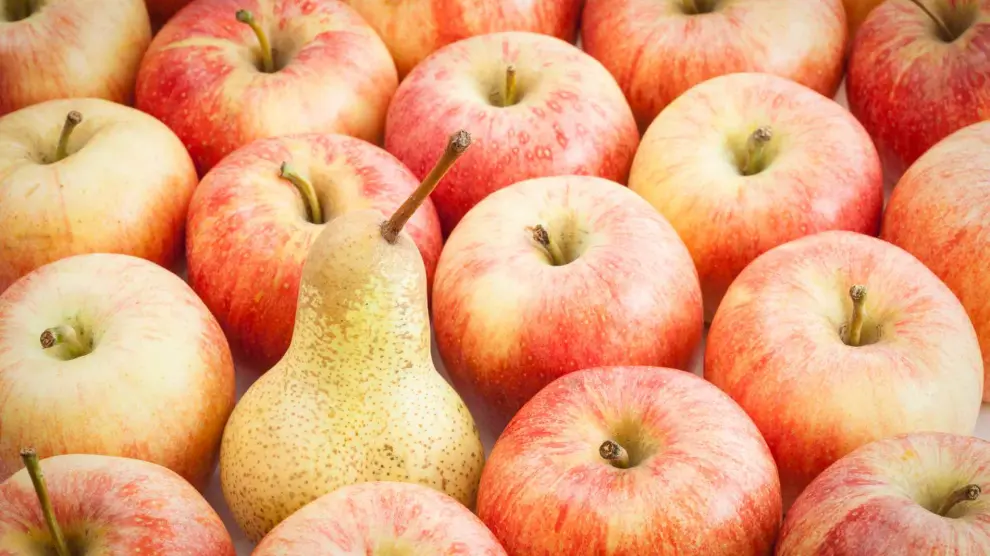Fruit is part of the Mediterranean diet as one of the essential sources of nutrients and naturally occurring sugars, which are transformed into energy in the body. It’s essential, and variety is the secret to a healthy diet. However, of all the possible fruits, nutritionist and pharmacist María José Cachafeiro, author of the book “Rejuvenate by Eating,” highlights one that is particularly interesting to help lose weight, now that the good weather is starting to arrive and deadlines are pressing.
The expert refers to the apple, a humble fruit that, nevertheless, “is a nutritional gem.” How and when to eat it to get the most out of it when it comes to weight loss, and how fruits and vegetables can be great allies not only in weight loss but also in taking care of our long-term health, is the focus of the expert consulted, who explains many of the benefits of apples that we’ve probably never stopped to explore.
What makes apples an ally in weight loss?
“Yes, I know. It’s happened to all of us: we want to eat healthier, lose those extra pounds that have stuck to us this winter, and, at the same time, feel more energetic and better-looking to enjoy the good weather that’s approaching. Well, there’s one fruit that can be a wonderful ally in this whole process, and that’s the apple. It’s not exotic, nor is it trendy on TikTok, but it has science, tradition, and common sense on its side,” the nutritionist begins by explaining.
Apples are rich in fiber, especially pectin, a soluble fiber that helps regulate intestinal transit, improves the microbiota, and produces a feeling of satiety like few other foods. “We all know that if we arrive at a meal less ‘full of hunger,’ we’ll eat better and more sensibly, without unnecessary excesses that only provide us with empty calories. What’s more, this fruit has a low glycemic index, which means it doesn’t spike blood sugar levels (key if we’re looking to avoid insulin spikes that promote fat storage).”
And there’s more. Apples provide antioxidants like quercetin, with anti-inflammatory properties and protection against cellular aging. All this, with hardly any calories. It’s no coincidence that the popular saying holds them in such high regard: ‘An apple a day keeps the doctor away.’ And we could add: the endocrinologist and dermatologist too,” explains Cachafeiro.
What is the best way to eat apples to lose weight?
As the nutritionist continues, “We can eat apples mid-morning or mid-afternoon to avoid arriving at the next meal ravenously hungry. But they can also be a wonderful dessert (better raw than stewed) or even a star ingredient in a salad or baked with a touch of cinnamon.” If what you’re trying to do is slow down the absorption of fructose (the sugar naturally present in fruit ) and avoid rapid increases in blood glucose, you can accompany the apple with a small source of protein or healthy fats.”
For example, the expert recommends combining an apple with walnuts, sugar-free natural yogurt, or a piece of cured cheese (if dairy doesn’t make you feel bad). “This combination not only improves the glycemic profile of your intake, but also increases the feeling of satiety and helps control your appetite for longer.”
However, adding other simple sugars to apples is a bad idea if your goal is weight loss. “Avoid combining this beneficial fruit with other sources of simple sugars if your goal is weight loss (for example, there’s no need to add honey). And remember that eating it with the skin will be much better for your health, since much of the apple’s fiber and antioxidants are concentrated there.”
The key is in nutritional balance and quantity
As with everything in nutrition, the key to apple consumption is also balance. “An apple a day is a reasonable, healthy, and easy-to-incorporate amount into your routine. If you eat more than one, try to spread it out throughout the day and make it part of a diet rich in a variety of fruits and vegetables. Remember that it’s neither necessary nor recommended to eat just one specific fruit; rather, the ideal is diversity and inclusion within your overall diet,” says the expert.
Beyond apples, “red fruits, for example, are also excellent allies: antioxidants, low in sugar, and with an anti-inflammatory effect. Kiwi, papaya, grapefruit… they all have their thing. But if you have to choose a fruit for daily consumption that’s practical, accessible, satiating, and compatible with a healthy and anti-inflammatory lifestyle, the apple takes the medal.”
Fruits, vegetables, and maintaining a healthy weight
Fruits (like apples) and vegetables are foods with low caloric density and high nutritional density. To put it simply, they provide a lot of nutrients and very few calories. That is, they have vitamins, minerals, antioxidants, and fiber… but they don’t add much energy to your daily total. “For example, 100 grams of apple has about 50 kcal. In contrast, 100 grams of cookies can have over 450 kcal. With fruit, you eat more, chew, feel full, and, on top of that, you’re nourishing your body (and your microbiota). That’s the big advantage: you can eat in volume without boosting your calories.”

